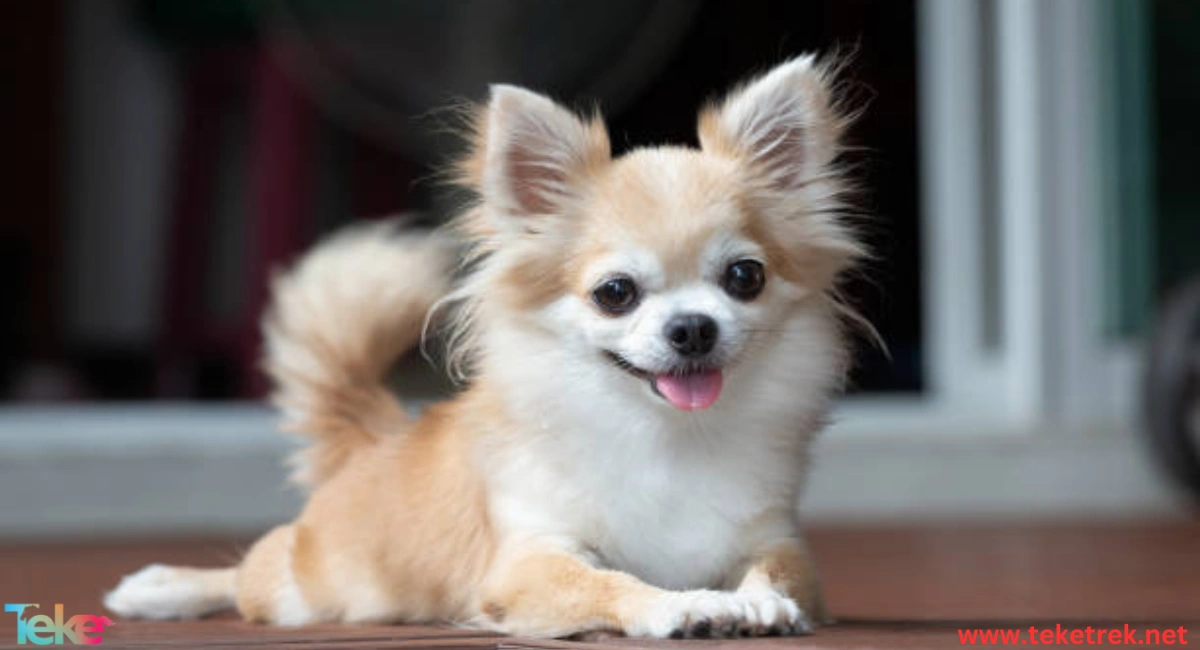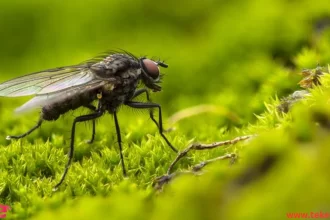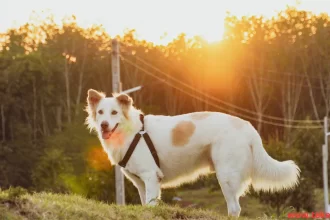Discover the secrets of the Chihuahua, the smallest dog breed in the world, in this intriguing article from teketrek. Originating from the Mexican state of Chihuahua, which lends its name to the breed, this tiny dog was initially promoted as a small and elegant companion, making it popular worldwide. However, the Chihuahua is more than just an ordinary dog; it carries a rich history that dates back to ancient times, where it served as a loyal companion to indigenous communities in Mexico. Here, you’ll find everything you need to know about this charming little dog, from its physical traits to its behaviors and care requirements. Let’s get started!
Information About the Chihuahua
The Chihuahua, the smallest dog breed in the world, takes its name from the Mexican state of Chihuahua. This small dog is known for its feisty nature and behavior, which largely depends on how it is raised and treated by its owner. The Chihuahua has a light coat that suits the warm climate of Mexico, but its small size makes it sensitive and vulnerable to injuries and attacks from larger animals. Proper socialization and training are crucial for the Chihuahua to exhibit its best behavior, and it responds well to rewards and affection when learning new behaviors.
Despite its small size, the Chihuahua is a smart and excellent watchdog, showing intense loyalty to one person in the family. However, caution is advised when raising it in homes with young children, as it can be sensitive and may not be suitable for them. Additionally, the Chihuahua requires special medical care due to its susceptibility to small dog health issues such as hypoglycemia and dental problems. With proper care, a Chihuahua can live a long life of up to 16 years or more, making it a beloved and loyal companion to its owners.

Types of Chihuahuas dog
Chihuahuas come in two main types, each with unique characteristics that distinguish them from one another. Below is a detailed overview of these two types:
1. Smooth-Coat Chihuahua:
- This type is the most common among Chihuahuas, known for its smooth and short coat that covers its entire body.
- The smooth coat does not require regular grooming or trimming, making it a preferred choice for those seeking a low-maintenance dog.
- The coat colors vary between white, black, brown, gray, red, or a mix of several colors.
- Its small size makes it suitable for apartment living, but it needs regular physical exercise to maintain its health and activity levels.
- It has a strong and bold personality, often showing loyalty to one person in the family.
2. Long-Coat Chihuahua:
- This type is less common than the smooth-coat variety but is admired for its beauty and elegance due to its long, silky fur.
- The long fur grows all over its body, with more length around the ears, tail, legs, and neck.
- The coat colors are similar to those of the smooth-coat type, with possible spots.
- Its long fur requires regular grooming and trimming as needed to prevent tangling or damage.
- It needs protection from extreme cold and heat, as its fur does not provide sufficient insulation.
- It has a calm and gentle personality, loves people and other dogs, and tends to bark less.
- It learns quickly and requires training and socialization from a young age, needing attention and affection, as it can become sad or anxious if left alone for long periods.
Read also: Tasmanian Devil: The Fiercest and Smallest Carnivore
Chihuahua Characteristics
- Size: The Chihuahua is the smallest dog breed in the world, weighing between 1 to 3 kilograms and measuring between 13 to 20 cm in height.
- Head: It has a small, round head, giving it a blend of beauty and elegance.
- Ears: Its ears are upright, adding to its lively and alert appearance.
- Eyes: The Chihuahua has large, expressive eyes that enhance its unique charm.
- Nose: It has a short, pointed nose that contributes to its overall attractiveness.
- Coat: The coat can be either short, shiny, and smooth, covering the body evenly, or long and slightly wavy, adding a touch of elegance and distinction.
What Are the Advantages of the Chihuahua?
The Chihuahua boasts several exceptional qualities, including:
- Good with Cats: The Chihuahua adapts well to living with cats, making it an excellent choice for families with other pets.
- Low Shedding: Its coat does not shed much, reducing the need for constant cleaning.
- Hypoallergenic: Its coat is hypoallergenic, making it suitable for people with fur allergies.
- Highly Intelligent: The Chihuahua is very smart, making it easy to train and quick to learn.
- Adaptable: It can adapt to various environments and situations, whether in the city or the countryside.
- Soft, Shiny Coat: The Chihuahua’s coat is soft and shiny, adding to its appeal and beauty.
- Ideal for Apartment Living: Its small size and quiet nature make it perfect for living in small apartments.
What Are the Origins of the Chihuahua?
The Chihuahua’s origins trace back to the Mexican state of Chihuahua, where it was first discovered in the 19th century. Although its name is derived from this state, its historical roots go back over a thousand years. This breed lived among the Toltec Native Americans, who called it “Techichi,” meaning “small dog.” Some theories suggest that the Chihuahua resulted from a mix between the region’s native dogs and European dogs brought by Spanish colonists.
Thanks to this unique blend, the Chihuahua has become known for its qualities of bravery, beauty, and intelligence, making it popular worldwide. Its rich history and ancient roots make it more than just a small dog but a symbol of Mexican culture and history.
Read also: Best Food for Small Dogs
What Does the Chihuahua Eat?
The Chihuahua’s diet should be balanced and healthy, matching its size, activity level, and age. The food should be rich in protein, low in fat, and free from artificial colors, flavors, and preservatives. Below are some suitable and unsuitable foods for a Chihuahua:
Suitable Foods:
- Boiled Chicken: An excellent source of protein and essential amino acids for the growth and health of a Chihuahua. Serve small pieces of boiled chicken without bones or seasoning.
- Carrots: Rich in vitamins, minerals, and fiber, supporting eye, skin, teeth, and digestive health. Serve small pieces of boiled carrot.
- Green Beans: A good source of vitamins, minerals, fiber, and antioxidants, promoting heart health, immune function, and disease prevention.
Harmful Foods:
- Chocolate: Contains a substance called theobromine, which is toxic to dogs and can cause poisoning, seizures, vomiting, diarrhea, rapid heart rate, headaches, bleeding, kidney failure, and even death.
- Onions and Garlic: Contain a substance called thiosulfate, which is toxic to dogs and can cause anemia, weakened immune system, breathing difficulties, liver inflammation, and death.
- Grapes and Raisins: Contain unknown substances that are toxic to dogs and can cause poisoning, vomiting, diarrhea, kidney failure, and death.

Chihuahua and Common Diseases
Chihuahuas are susceptible to many serious and common diseases. This breed of dog is susceptible to infectious and physical diseases due to their small size and weak bones. The most common diseases affecting these dogs are:
- Hypoglycemia.
- Tracheal collapse.
- Tooth and bone pain.
- Epilepsy.
- Luxury and deviated patella.
Chihuahua Reproduction
Chihuahuas can reproduce and mate immediately after reaching maturity, as reproduction is instinctive and innate and maintains the survival of the breed. The Chihuahua breeding method is as follows:
- The age at which dogs become sexually ready to reproduce and mate varies depending on the breed and size. Chihuahuas typically require mating between 6-9 months.
- The success of a Chihuahua mating depends primarily on the female and her readiness to reproduce. Female Chihuahuas mate twice a year, between two and four weeks apart, and mating lasts for 45 minutes.
Chihuahua Care
There are some steps you should follow to care for your Chihuahua and maintain its health. These steps are as follows:
Avoid excessive exercise during the first year of your Chihuahua’s life, especially walking, as excessive exercise can cause growth plate damage.
Chihuahuas should be given more attention than other dogs, as their teeth are sensitive, and not cleaning them can spread diseases.
Chihuahuas should be monitored regularly and should be prevented from jumping from heights exceeding one and a half meters, as any jumps can cause knee pain.
You should see a veterinarian every two months if your dog exhibits any unusual symptoms to protect them from any circulating viruses, as Chihuahuas are sensitive dogs with weak immune systems.
Chihuahua and its History
We can explain why this breed of dog was named Chihuahua, as the name spread rapidly. This breed of dog is unique and has characteristics that distinguish it from other dog breeds. The history of the Chihuahua goes back to the following:
Chihuahuas are the smallest dogs in the world, and their name comes from the state of Chihuahua in Mexico.
The aggressiveness and ferocity of these dogs depend on the breeder themselves, not on the breed or the place where they were born.
Chihuahuas have light fur to withstand the Mexican heat.
A 2020 study, based on ancient dog genome sequencing, indicated that the Chihuahua breed has two lineages: 4% Mexican and 3% pre-colonial Mexican origin.
Raising a Chihuahua
There are some basics to keep in mind when raising a Chihuahua at home, including the following:
- Avoid bringing a Chihuahua into a home with young children, as this breed is extremely jealous of children.
- Avoid leaving a Chihuahua outside alone without supervision.
- Chihuahuas are sensitive dogs that cannot tolerate extreme cold, so heavy clothing should be placed over the dog’s body to keep it warm.
- Available Chihuahuas should be given some light, cotton or plastic toys to keep them entertained.
- Gently clean the discharge from the eyes of the Chihuahua on a weekly basis, and remove any wax buildup from their ears.
- Chihuahuas should be given a half-hour daily walk.
- Chihuahuas should be litter box trained from an early age and bedtime trained.
- Chihuahuas should be trimmed monthly, as their nails grow rapidly.
The Chihuahua in Daily Life
There are some guidelines to focus on in daily life when having a Chihuahua at home, including the following:
- Avoid taking your Chihuahua outside in cold weather to prevent it from getting sick and catching the flu.
- Love should be expressed to your Chihuahua by cuddling, providing it with food stimulants, and playing with it.
- The Chihuahua should be monitored and supervised constantly, especially when there are children in the house.
- The Chihuahua’s coat should be combed once a week with a wide-toothed comb to stimulate the hair follicles.
Chihuahuas and Their Interaction with Children
We can learn about the Chihuahua’s behavior with humans, specifically children, as some dogs raised at home do not like children and do not interact with them. We can also learn about this dog’s behavior and the extent of its interaction with children, as follows:
The Chihuahua is a small, gentle dog, but this dog may not be suitable for homes with children, as this dog displays its strength and stubbornness with smaller creatures, such as young children. Chihuahuas are also among the dogs that become jealous and aggressive around children in the household. This breed is known for its stubbornness and nervousness, making training them difficult due to their strong will and difficulty in submissiveness.
However, these dogs tend to live in small households and adapt to only one, two, or three adults. They do not interact with children at all.
Chihuahuas and Favorite Activities
There are many activities that Chihuahuas prefer and enjoy doing daily, as these activities increase their activity and vitality. However, it should be noted that Chihuahuas’ bones are fragile and delicate and cannot withstand any injury. Favorite activities for Chihuahuas include:
- Chihuahuas love to run and play with their owners, and some light exercise can be done in a very small space.
- Chihuahuas love to run after their owners in parks or clubs.
- Chihuahuas need some interactive toys, as they are a small breed with weak bones. One of the best games Chihuahuas love is fetching toys and putting them back. These dogs also love treats, lots of kisses, and frequent hugs. Chihuahuas are often frustrated by boredom and lack of love.
Frequently Asked Questions
Is the Chihuahua Dangerous?
No, the Chihuahua is not inherently dangerous, but it can display aggressive behavior if not properly trained and raised. Due to its small size, it can be cautious and anxious, but it is usually gentle and friendly if treated kindly.
What Are the Disadvantages of the Chihuahua?
Despite its small size and charm, the Chihuahua has some drawbacks to consider:
- High Sensitivity: Due to its small size, it is prone to injuries, requiring special care.
- Aggressive Behavior: It can be aggressive toward strangers or other animals if not properly trained.
- Clinginess: It tends to be overly attached to one person in the family, which can lead to separation anxiety.
- Excessive Barking: It may bark excessively, which can be bothersome in residential areas.
- Health Issues: Prone to common health problems such as hypoglycemia, dental issues, and collapsed trachea.
- Need for Protection from the Cold: Its short coat does not provide sufficient insulation, requiring warm clothing in cold weather.
In conclusion, the Chihuahua is a small companion full of vitality and charm, combining intelligence and loyalty. Despite the challenges of caring for it, its love and devotion more than compensate for the effort. Choosing a Chihuahua means adopting a loyal friend who will fill your life with happiness and fun.
Refrences





